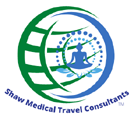There are many people who suffer from depression whether it is chronic depression or situational depression or postpartum depression, but the symptoms are by and large similar. Depression is one of the most common mental health problems affecting more than 300 million people worldwide according to the World Health Organization (WHO). “Mental health issues are among the leading causes of ill health among travelers and psychiatric emergency is one of the most common medical reasons for air evacuation along with injury and cardiovascular disease” according to WHO. Many people enjoy traveling. Some of these same people who enjoy traveling also feel depressed from time to time. Sometimes the depression is so bad that it interferes with traveling and often-times we consider – will traveling help my depression or not? If you are struggling with depression, it doesn’t necessarily mean that you cannot travel.
It’s important to realize however that travel is not a cure for depression and although it may improve the way we feel temporarily, returning to prior environments or situations can prompt depression feelings again.
What are the symptoms of depression?
- Mood changes such as anxiety, loss of interest or pleasure in activities, mood swings or sadness, feelings of guilt or general discontent and hopelessness, apathy and sometimes even anxiety.
- Behavioral changes such as agitation or excessive crying and irritability, restlessness and even at extreme level social isolation
- Sleep changes and cognitive changes can occur such as early awakening, excessive sleepiness, insomnia or restless sleep, lack of concentration and slowness in activity and even at extremes thoughts of suicide.
- General symptoms such as excessive hunger and fatigue or even loss of appetite, with weight gain or weight loss.
Tools for preparing to travel.
- Plan your trip, so you will know what to expect as unknown events, unrealistic expectations and surprises can increase stress and anxiety.
- If you’re not an experienced traveler, start with small adventures and possibly local travel before embarking on multiple leg international travel.
- Make prior arrangements and give yourself time – decrease stress.
- Planned downtime in your travel and after your travel is complete – helps to reduce stress and anxiety from transitioning.
- In planning your itinerary consider avoiding high stress and congested, busy confusing and complicated towns and cities. try to focus on relax locations.
- In planning consider including locations that offer meditation and yoga, give yourself breathing room to relax.
- Try to maintain a routine by forcing yourself to get up and get about, start your day around the same time is a good idea.
- Try not to push yourself too much and try not to compare yourself to others. Some people find that exploring new places helps their depression symptoms while others discover that the stresses of jet lag and being in strange places can make their feelings worse. Take your time and be gentle with yourself and give yourself permission to feel & be in the moment.
Medications while traveling .
- Make sure to take your anti-depression or other medications with you on your trip, avoid changing the dosages around the time of your trip.
- Pack medications in carry-on bag not your checked bag.
- Always take medication in the original labeled bottles with the original prescription written on it, and the doctors name/address/phone number.
- It’s important to note however that many psychotropic drugs used to treat depression are restricted or even banned in some parts of the world so it’s important to review sources such as your local travel clinic, CDC, the visiting country Immigration and Customs website.


Awesome to know , thanks for the info!